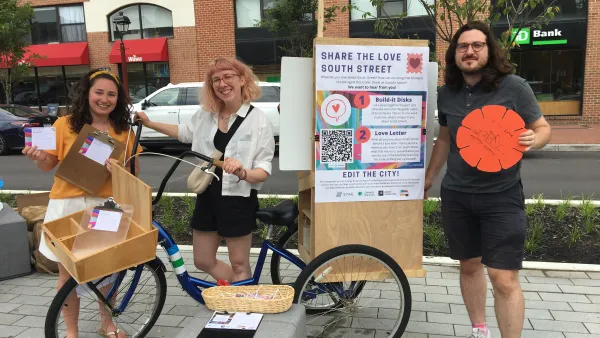Recently published research examines the "Role of Artificial Intelligence in Community Planning"—that is, the role of automated bots on social media in corrupting participatory planning processes.

New research published by the International Journal of Community Well-Being—written by Justin B. Hollander, Ruth Potts, Maxwell Hartt, and Miny Situ—examines the potential roles and risk of automated social media accounts to influence the community engagement components of planning processes.
Inherent to this investigation is an awareness of the growing awareness of land use development issues, as enabled by the Internet and its many social media platforms. As has been well documented with regard to issues of national and presidential politics, automated social media profiles can be deployed to corrupt the public discourse.
"Due to the low cost and high potential engagement, planners and policymakers have been quick to open electronic channels of participation to inform the decision-making process. Doing so has created an opportunity for subversion from groups with alternate and possibly nefarious interests," reads the abstract for the research.
In the process of reviewing the relevant literature, the paper reveals comes key terminology that defines the strategies of social bots (e.g., astroturfing, spamming, and Twitter bombs) that might be helpful in diagnosing the behavior and tenor of online accounts. Eventually the paper offers a list of mitigation strategies to help planners ensure that social bots don't overwhelm the public trust in planning processes.
The entire paper is available online via Springer.
FULL STORY: The Role of Artificial Intelligence in Community Planning

National Parks Layoffs Will Cause Communities to Lose Billions
Thousands of essential park workers were laid off this week, just before the busy spring break season.

Retro-silient?: America’s First “Eco-burb,” The Woodlands Turns 50
A master-planned community north of Houston offers lessons on green infrastructure and resilient design, but falls short of its founder’s lofty affordability and walkability goals.

Delivering for America Plan Will Downgrade Mail Service in at Least 49.5 Percent of Zip Codes
Republican and Democrat lawmakers criticize the plan for its disproportionate negative impact on rural communities.

Test News Post 1
This is a summary

Test News Headline 46
Test for the image on the front page.

Balancing Bombs and Butterflies: How the National Guard Protects a Rare Species
The National Guard at Fort Indiantown Gap uses GIS technology and land management strategies to balance military training with conservation efforts, ensuring the survival of the rare eastern regal fritillary butterfly.
Urban Design for Planners 1: Software Tools
This six-course series explores essential urban design concepts using open source software and equips planners with the tools they need to participate fully in the urban design process.
Planning for Universal Design
Learn the tools for implementing Universal Design in planning regulations.
EMC Planning Group, Inc.
Planetizen
Planetizen
Mpact (formerly Rail~Volution)
Great Falls Development Authority, Inc.
HUDs Office of Policy Development and Research
NYU Wagner Graduate School of Public Service





























